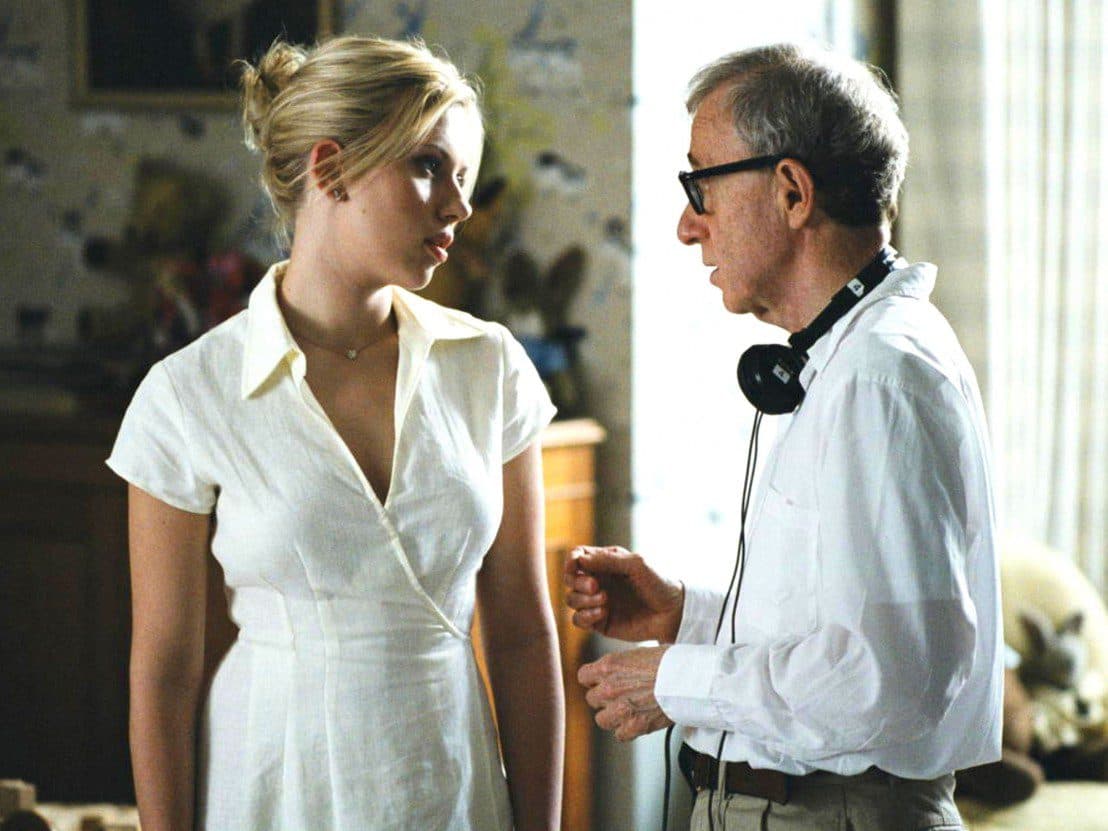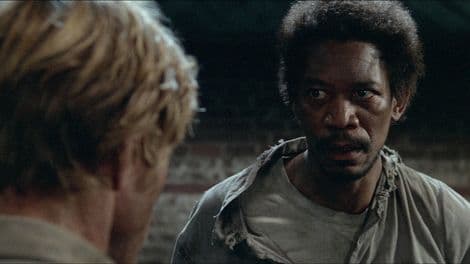Family Dinner Movies: More Than Just Passing the Salt – A Deep Dive into Cinematic Meals Gone Wrong (and Sometimes Right)
Family dinners evoke laughter and shared stories, maybe burnt roast chicken. In movies, they shift. Suddenly, awkward silences turn into conflicts. The dinner table becomes a battleground. Films explore dysfunctional families and culinary chaos. Get ready for a unique feast that dives deep.
Movie Analysis and Plot Summaries: When Dinner Takes a Dark Turn
Family Dinner: Easter Weekend Gets Extra Awkward
Let’s talk about "Family Dinner." You’re an overweight teen set for Easter with your aunt. Seems harmless, right? Wrong. Aunt Claudia is not like other aunts. She is a nutritionist with radical ideas. Prepare for bizarre diets and strange behaviors in this chaotic family gathering.
The teen protagonist enters a nutritional nightmare. Aunt Claudia enforces strict dietary views. Soon, the family dynamic shifts from charming to mad. Her behavior is unsettling towards her son and niece. The proverbial dinner table reveals uncomfortable truths and heated emotions. Family gatherings can bring out dread.
"Family Dinner" Rating: Why the R?
Curious about why "Family Dinner" has an R rating? It’s not about gore or explosions. It revolves around “Sex, Romance & Nudity.” One scene stands out, involving a sexual encounter between an older man and a high school student. While inputs are invisible, it's clear what's happening. Not for kids at all.
There are also innuendos between a married couple, which contribute to its mature themes. So, while "family dinner" sounds innocent, this film isn't serving anything family-friendly.
The Dinner: Polite Discourse Hiding Family Explosions
Next up, we discuss "The Dinner." This film dives into the horrors of family secrets. Picture it: two couples at an upscale restaurant, dressed to impress. Conversation flows and clinks of wine glasses fill the air. But hidden lies brew beneath the surface, waiting to explode.
The couples are brothers and their wives. They deal with a shared family crisis involving their kids. The polite chatter is deceptive. It masks weighty issues about a horrific act their teens committed. Ethical debates mix with appetizers, and parental anxiety sits beside dessert. Oren Moverman's film shows characters engaging in endless discussions, but saying nothing meaningful.
The Dinner Ending: Abrupt and Ambiguous?
Wondering how "The Dinner" ends? It's abruptly without resolution. As tension peaks, Katelyn struggles to reach Beau by phone amidst the crisis. Meanwhile, Stan gets good news about his bill from his aide. Relief? Not quite. The film concludes when Paul calls everyone "apes with phones" before collapsing in pain.
Paul’s erratic behavior finds its climax there, leaving viewers uncertain about what just happened. He croaks “Mental health for everyone!” as others move beside him in the snow. This ending feels disjointed, raising existential questions about meaning and connection.
Is "The Dinner" Worth Watching? A Matter of Taste
The big question is: "Is 'The Dinner' worth your time?" It all hinges on your taste for frustration in cinema. With a stellar cast and provocative themes surrounding love and protection, it seems promising at first glance. However, it takes two slow hours to raise the essential question.
By then, viewers might despise the characters so much that they lose interest in the answers. It demands patience and tolerance for discomfort or awkwardness. If you appreciate character studies wrapped in moral ambiguity, you might find "The Dinner" serves lukewarm soup.
"The Dinner": Based on True Events? Sort Of.
Is "The Dinner" based on real-life drama? Well, it hints at true events but not directly. It takes cues from a story about María del Rosario Endrinal Petit in Barcelona back in December 2005. This event inspired Herman Koch to write the novel, upon which the film is based.
Koch has a fascinating background as well; born in Arnhem and later living in Amsterdam before studying Russian and living in Finland. So yes, while the film isn't a direct retelling of María's struggle, it uses real events filtered through Koch's artistic lens.
Paul's Disorder in "The Dinner": A Spectrum of Speculation
Paul stands out in "The Dinner," played by Steve Coogan. His behavior raises eyebrows for its peculiarity. Curious minds ask, "What disorder does Paul have?" The film avoids labeling him directly, leaving viewers to interpret his actions due to potential mental health issues.
His traits hover between Asperger's and psychosis, creating complexities in the story. This intentional ambiguity enhances the unsettling feel of the film, pushing viewers to grapple with mental health insignificance in nuanced family dynamics.
The Menu: Chef's Special – Revenge, Served Hot
Finally, we reach "The Menu." This movie delves into culinary chaos amid revenge plots that take diners off guard. What happens when Chef Slowik tries to kill his guests? When life meets art on a hauntingly dangerous plate? It’s more than merely dinner; it's an event you might not leave alive.
and even himself." Dinner and a show become a grim event. The film opens with Margot Mills. She accompanies her date, Tyler, to Hawthorne, an exclusive restaurant on a private island. They join wealthy diners expecting culinary wonder. But they face Chef Slowik's deadly menu of vengeance instead.
"The Menu" Ending: Margot's Unexpected Dessert – Survival
With a chef intent on killing everyone, you might think "The Menu" concludes in total annihilation. However, there’s a twist involving a cheeseburger? "What happened in the ending of the movie 'The Menu'?" Amid kinetic chaos, Margot breaks through Chef Slowik's hard exterior. "Margot's authenticity and her ability to see through the facade earn her Slowik's respect, allowing her to live." She desires something real, something simple. A cheeseburger, to be precise. This request sparks something in Slowik, recalling his initial passion for cooking. "He gives her back her life because she gives him back his joy." As for the rest? "At the end, all the guests who perish become human s'mores." Yes, human s'mores. A darkly comedic and satisfying conclusion where authenticity beats artifice, and a cheeseburger saves a life.
"The Menu" Themes: Beyond the Bites – Food Snobbery and Power Plays
"The Menu" serves serious social commentary. "The film is not just a satire of food snobbery but critiques wealthy patrons who lack discerning palates. It examines the power imbalance between waitstaff and diners across the service industry and explores sacrificing artistry's pure joy for..." ...demands from the elite. It critiques pretentious fine dining where customers spend fortunes on food they don’t appreciate just to say they did. It highlights power dynamics where servers remain invisible; their labor often taken for granted. Chef Slowik’s chaotic menu rebels against this system, reclaiming his artistic integrity and making diners truly “taste” their consumption's consequences – literally and figuratively. It's food for thought, with a helping of fear.
Margot in "The Menu": Escort, Not Chef's Kin
There’s an intriguing moment in "The Menu" where Margot appears connected to Chef Slowik. Is she his long-lost daughter? A secret apprentice? "Is Margot the chef's daughter in 'The Menu'?" The answer is clearly "No." "Margot is not Slowik's daughter in the 2022 film." In reality, "Margot is an escort named Erin." She’s at the dinner as a last-minute replacement for Tyler's original date. This outsider position aids her survival. She sees through the pretense, ultimately gaining Slowik’s unexpected... burger-fueled mercy.
Other Movies Serving Up Dinner Drama
The Last Supper: Liberal Arts, Lethal Arts
"The Menu" isn't alone; other films feature deadly dinner guests. There's "The Last Supper," which elevates dinner conversation to deadly heights. "What is the movie about killing dinner guests?" "The Last Supper" is a 1995 American satirical black comedy directed by Stacy Title." It stars Cameron Diaz with Ron Eldard and others as "five liberal graduate students who invite extreme conservatives to dinner to murder them." Murderous parties abound. A dark comedy where political debates crescendo into... homicide.
Dinner at My Place (Netflix): Secrets on the Menu
For drama with less blood, see "Dinner at My Place" on Netflix. "What is 'Dinner about on Netflix'?" This film focuses on relationship drama. "Two old friends and their partners gather for a meal, where a fifth guest spills secrets that threaten to bring down both relationships." It’s a recipe for emotional ruin, where hidden secrets explode alongside appetizers, and the main course serves emotional fallout. You ask, "Is 'Dinner at My Place' on Netflix?" Yes, you can "Watch it with Netflix subscription or rent it on Prime Video." For relationship drama with awkward humor, this may be your cinematic meal.
Cannibal Apocalypse: Dinner... Is You!
For a truly stomach-churning dinner film, try "Cannibal Apocalypse." It certainly involves what the title implies. "What is the movie where they eat humans on Netflix?" The answer lies in "Cannibal Apocalypse." "Three Vietnam veterans return to the US post-war carrying a virus that turns people into cannibals." It’s a gruesome feast of flesh-eating frenzy, far from typical family dinners. While it airs on Netflix, it’s not for the squeamish – or weak of stomach. Consider this your cinematic “do not attempt at home” warning.
The Host: Monster Mash... and Mealtime?
Even monster films feature dinner scenes, albeit in unusual styles. Look at "The Host." "What happens at the end of the movie 'The Host'?" Following a terrifying creature battle, it ends in mundane fashion. "Gang-du and Se-joo sit to eat while news of the monster attack blares on TV." A different kind of dinner show unfolds. "The film concludes with Se-joo asking Gang-du to mute the TV so they can focus on eating." Even amidst monstrous chaos, the act of sharing a meal prevails. Though maybe a monster-free conversation would be preferable.
The Dinner (Again): Kids Behaving Badly
Recall "The Dinner," rife with simmering family tensions? Part stems from the actions of their children. "What did the kids do in the movie 'The Dinner'?" The plot unfolds "organized under chapter headings corresponding to meal stages, as the four discuss an incident where their teenagers Michael (Charlie Plummer) and Rick (Seamus Davey-Fitzpatrick) harshly harassed a homeless woman." This horrendous act triggers the dinner meeting, forcing parents to face their values and protectiveness toward offspring. It reminds us that sometimes the scariest monsters are not otherworldly but homegrown.
Hannibal Lecter's Dinner Invitation: "Old Friends" on the Menu
Finally, any dinner movie discussion needs a nod to Hannibal Lecter, the master of cinematic culinary creepiness. "I'm having an old friend for dinner." "What movie is the quote 'I'm having an old friend for dinner'?" That iconic line comes from "Hannibal Lecter: [on phone] I do wish we could chat longer, but... I'm having an old friend for dinner. Bye." It chillingly highlights Hannibal's... dietary preferences. When Hannibal invites you for dinner, responding "RSVP yes" is not advised.
Family Dinner - Concept and Importance: More Than Just Food on a Plate
Defining Family Dinner: Shared Meals, Shared Moments
After those chaotic cinematic dinners, let's return to basics. What exactly defines a "family dinner?" "What is the meaning of family dinner?" It's more than shoveling food into your face while scrolling through your phone. A 'family dinner' means a
A family dinner is a time for all family members to gather at the table. They eat together and converse. The focus is on sharing updates about their day. It's about connection and togetherness. The food serves as a backdrop, not the main event. Communication takes center stage during these meals.
The key elements of a family dinner go beyond food. "Conversation is crucial: It's vital to listen and talk with each other." It allows family members to catch up and share experiences. Quality time matters, too. Family dinners build relationships and strengthen bonds. In our fast-paced world, these dinners offer a chance for meaningful interaction. "No distractions: Phones should be put away during meals." This time is free of digital interruptions, creating a space for genuine connection. Stanford Medicine emphasizes the importance of family meals. Visit their article Why the Family Meal Is Important for more insights.
The Importance of Family Dinners
Why are family dinners essential amidst our busy lives? They hold significant benefits. "What is the purpose of the family dinner?" It's about enhancing well-being. "Gathering helps families cope with daily stresses." It serves as a comforting ritual in the chaos of life, providing support. Family dinner acts as daily therapy without the costs.
Family dinners also positively impact physical health. "Eating together encourages better eating habits, aiding in weight management." Families become more mindful with food choices. They rely less on fast food and more on balanced meals. "Eating together promotes healthier lifestyles." Thus, family dinner contributes to emotional and physical health.
Decoding Movie Ratings
Understanding R Ratings: Restricted Viewing
We've discussed R-rated films like "Family Dinner." What does that "R" mean? "Rated R: Restricted – Under 17 requires an adult guardian." This rating signals mature content unsuitable for younger viewers. But it's more than just an age limit.
Theater policies shape R-rated viewing. For example, "Guests aged 6 to 16 need an adult aged 21 or older." Those 17 and up can buy tickets independently. An 18-year-old can watch alone but needs permission for minors. The rules aim to balance access with parental guidance.
MA Rating: Mature Audiences Only
The MA rating, seen in shows like "Shameless," stands for "Mature Audiences Only." "Why does 'Shameless' have this rating?" It indicates intense content unsuitable for those under 17. "'Shameless' includes graphic themes of sex, nudity, drugs, and strong language." The themes are explicit and adult-focused.
MA ratings arise from clear reasons. "Explicit sexual content: The show has numerous sex scenes including nudity." The topics are serious and detailed. "Heavy drug and alcohol use features prominently." Substance abuse appears throughout the series, affecting the plot. "Strong language: Profanity and vulgar language are frequent." The dialogue is raw. "Violence: Disturbing scenes may occur but are not central." MA signifies a strong advisory for viewers.
The TV-14 Rating: Teen-Focused Content
Shifting to TV-14, as in "Gossip Girl," this rating suggests caution for viewers under 14. "What is the TV-14 rating?" It implies content unsuitable for younger children but less severe than R or MA. "'Gossip Girl' depicts mature themes like sexual situation and drug use." It's appropriate for teens but holds adult implications.
Details about the TV-14 rating include: "Sexual content: There are many suggestive scenes but not graphic." Implied encounters occur throughout the series. "Alcohol and drug use is common." Consequences often appear minimal in this drama. "Mature themes: Cheating and manipulation featured." The narratives invoke serious dilemmas. "Language: Strong language is present, though moderated." Parents should still be aware of the content in TV-14 shows.
NC-17 Rating: Adults Only
At the extreme end, we find the NC-17 rating. "What does NC-17 denote?" "NC-17 means 'no children under 17'." It represents the highest rating in film classifications. NC-17 clearly signals adult-only viewing.
The rationale behind the NC-17 rating is straightforward: "MPA considers these films unsuitable for minors." Content usually involves graphic themes, nudity, or violence. It serves as a strict warning for underage audiences.
Evaluating Appropriateness: More Than Ratings
Movie ratings provide guidance but aren't the only measure. Individual judgment counts too. Take "This Is Us" for instance. "Is 'This Is Us' appropriate for 11-year-olds?" Although not rated R or MA, "'This Is Us' addresses mature topics of death and complex family issues." These themes may be too nuanced for kids under 11.
"Mature themes: Topics include grief and mental health that may confuse youth." They offer profound emotional dialogues. "Language: Some strong language appears but is not pervasive." Language use occurs with caution. "Sexual content: Implied rather than graphic situations arise." Themes in "This Is Us" are typically more suggestive than explicit.
More about emotional maturity than age ratings. It's something to watch with older children. Younger ones should not watch unsupervised.
On the other hand, there's "Breaking Bad." "Is 'Breaking Bad' family friendly?" No, it is not. "The show is not for kids. It has violence, swearing, drugs, etc. But kids learn about it in school." It has adult content. It is not family-friendly.
Then there's "Nope." "Why is 'Nope' rated R?" "It is rated R due to intense frightening scenes, graphic violence, and strong language. Language is considered strong by the MPAA standards." It contains disturbing content.
“Intense visuals: The film has prolonged tension and disturbing imagery related to aliens. Younger viewers may find it upsetting.” The visuals aim to unsettle. “Moderate gore: There are scenes with visible blood and injury details, especially during the climax.” There’s some gore present but not excessive. “Strong language: The film uses strong profanity.” Language is a factor for the R rating. "Nope" is not suitable for young audiences.
Not all movies on serious topics are off-limits for kids. "My Girl" is an example. "Is 'My Girl' kid appropriate?" Yes, surprisingly. "It encourages kids to discuss feelings about death and parents’ romantic lives. If kids ask questions, they can watch with parents." “My Girl” helps discuss difficult emotions. It's about context and conversation.
Then there are movies like "Parenthood." "What age is 'Parenthood' appropriate for?" The consensus? "Keep toddlers through teens away from this one." The reviewer states that they are a liberal parent. Despite its title, "Parenthood" is not family-friendly for younger audiences.
Movie ratings can guide, but parental discretion matters. Understanding a child’s maturity level is key.
Dinner Etiquette and Customs: Navigating the Tabletop Terrain
End of Dinner Etiquette: Signaling "I'm Done" Without Words
Dinner involves more than eating. It includes unspoken rules of etiquette. Signaling the end of the meal can be tricky. What's the secret? "When you finish, leave your plates in place; don’t push or stack them. Lay your fork and knife diagonally across the plate, pointing at 10:00 and 4:00." This signifies you've finished.
The 10:00 and 4:00 placement signals waitstaff that you are done. No need to announce it verbally; your utensils can talk for you.
“When finished, leave your plates in the same position.; don’t push or stack.” Resist the urge to tidy up; plates must stay as they are. Waitstaff recognize "finished" signals to clear the table. Stacking or pushing plates can be impolite. So, let your utensils communicate.
Table Manners: Beyond "Please" and "Thank You"
Table manners extend beyond saying "please" and "thank you." Subtle rules exist for dining decorum. For instance, "Distorting or playing with food is unacceptable." Food is for eating, not playing. Launching food across the table is a definite faux pas.
Pacing yourself is also key. "Eating at a moderate pace is important. Eating too slowly implies dislike of the food while eating too quickly is rude." Dining is like a marathon; pace yourself correctly.












Responses (0 )